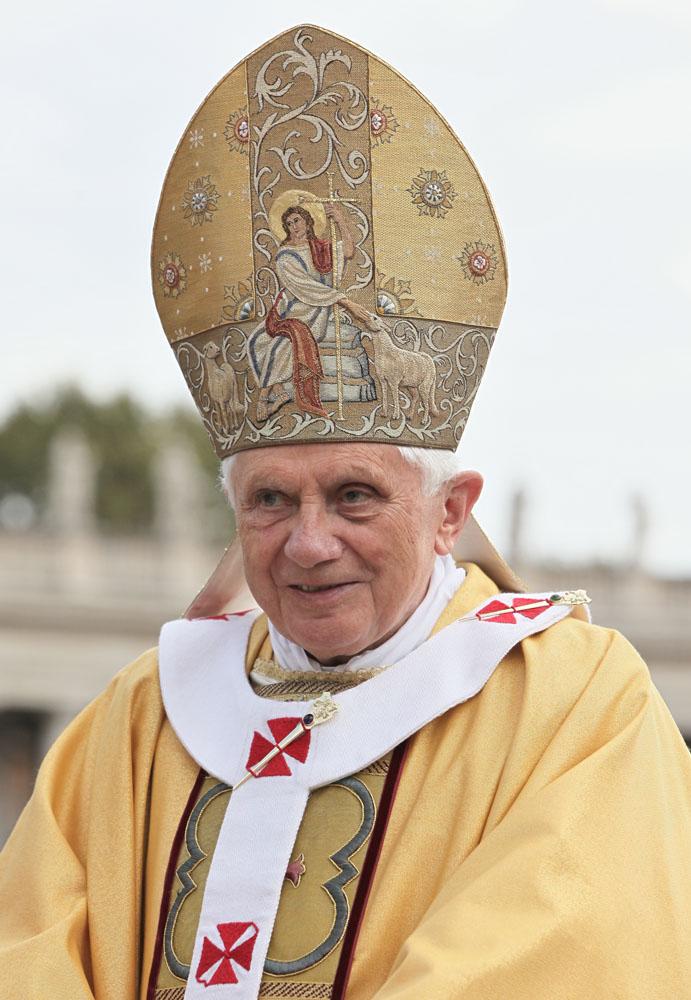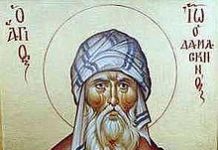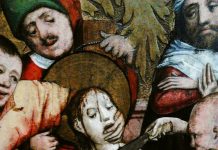(What follows is Pope Benedict XVI’s last Advent Angelus address as Pope, in 2012. A couple of months later, in February, 2013, he would resign, in what to some are mysterious circumstances, the Benedict himself citing incapacity to continue with the increasing burdens of the papacy, given his health. Oh, to have his clarity once again! One wonders what he thinks now, nearly a novena of nine years hence, with what is happening to the Church. In the midst of the storms and travails, we must keep our heads above water – indeed, even walk on the water – with our eyes on Christ, the end, the purpose, the Alpha, the Omega. He will see all things righted, for none can resist the Truth incarnate, and that Truth will win out in the end. Let us hurry with haste to meet Him.).
BENEDICT XVI
ANGELUS
Saint Peter’s Square
Fourth Sunday of Advent, 23 December 2012
[Video]
Dear Brothers and Sisters,
On this Fourth Sunday of Advent that comes just before the Nativity of the Lord, the Gospel speaks of Mary’s visit to her kinswoman Elizabeth. This event is not merely a courteous gesture but portrays with great simplicity the encounter of the Old Testament with the New. Indeed the two women, both of them then pregnant, embody expectation and the Expected One. The elderly Elizabeth symbolizes Israel which is awaiting the Messiah, whereas the young Mary bears within her the fulfilment of this expectation for the benefit of the whole of humanity.
First of all in the two women the fruit of their wombs, John and Christ, meet and recognize each other. The Christian poet Prudentius comments: “the child imprisoned in the aged womb greets by his mother’s lips his Lord, the maiden’s son” (Apotheosis, 590: pl 59, 970). John’s exultation in Elizabeth’s womb is a sign of the fulfilment of the expectation: God is about to visit his People. In the Annunciation the Archangel Gabriel spoke to Mary of Elizabeth’s pregnancy (cf. 1:36) as proof of God’s power; in spite of her old age her barren state was made fecund.
In her greeting to Mary Elizabeth recognizes that God’s promise to humanity is being fulfilled and exclaims: “Blessed are you among women, and blessed is the fruit of your womb! And why is this granted me, that the mother of my Lord should come to me?” (Lk 1:42-43). In the Old Testament, the phrase “blessed are you among women” refers both to Jael (Judg 5:24), and to Judith (Jud 13:18), two women warriors who do their utmost to save Israel.
(To continue reading, please see here).











